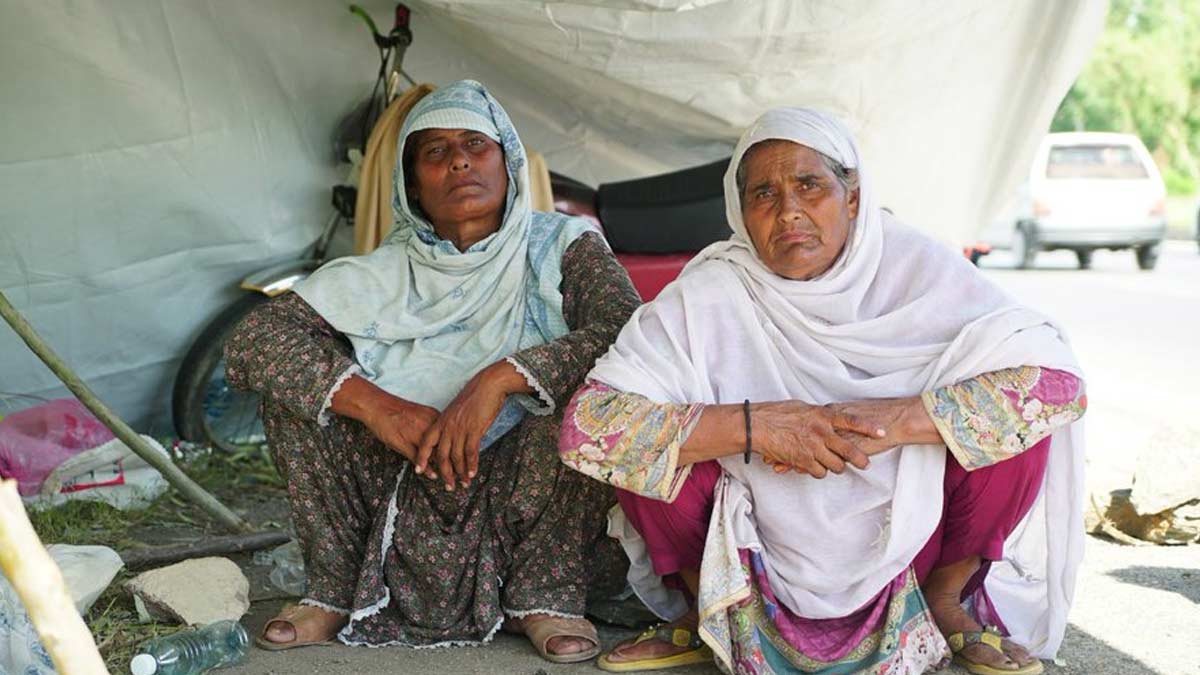
After the havoc caused by the devastating floods in Pakistan, many families have been relocated to makeshift camps. The devastation has led to women and young girls to defecate out in the open, and fearing for their safety.
According to Human Rights Watch, there are 6,50,000 pregnant women and girls among the worst affected people in the country. Of those, 73,000 women have due dates in the coming weeks.
Not only are these women struggling with access to proper healthcare, but they are striving to keep themselves safe.
#PakistanFloods#FromtheField
— WFP Pakistan (@WFPPakistan) September 6, 2022
WFP staff members are on the ground and supporting the @GovtofPakistan to provide immediate food assistance to those most in need.
Some 📸 from the field during our registration process for food distributions in Sindh. pic.twitter.com/D722FZ7a41
Menstruating and pregnant women and girls have resorted to defecating out in the open. They have limited or no access to clean toilets and period products.
One woman told News 18 that women have no place to shower, to do personal business privately. Women from rural and conservative families are forced to live in close proximity to men, who are not their relatives (which is against their culture).
Speaking to News 18, another woman said she was scared to send her daughter alone to defecate in the open, for she will have to remove her clothes and squat in the open. Families are scared that men might come from anywhere and harm their women and girls.
Due to contamination of water, mosquitoes and flies are breeding in many places, posing health hazards for children and adults. Scorpions and snakes have also been spotted escaping the flood water. Certain places have either locked or unhygienic toilets.
Initially, women even ventured into the flood water to relieve themselves. However, they stopped doing it after some developed skin rashes and infections. This condition has also given rise to several other kinds of diseases, including stomach flu.
Many women have started to train themselves and their daughters to drink less water during the day. The less they drink, the less they will have to relieve themselves in the open. These women try to find secluded spots as far away as possible from the lights of tent colonies they currently reside in. They fear of men captivating them and taking advantage of their situation.
Don't Miss: Myths About Oral Contraceptive Pills
"The condition is getting worse - sitting with children, having no access to washroom and kitchen." - Mohammad Saddam with his family on the roadside in KP.
— WFP Pakistan (@WFPPakistan) September 5, 2022
🔴Donate now to help us distribute life-saving food to families affected by the flooding.
⬇️https://t.co/urX3aK9jIP. pic.twitter.com/pRsyIG7KOA
According to a National Public Radio report, women who do not have access to period products are using washed rags to absorb their period blood. Many are also using their ‘dupattas’, which they initially used to cover their hair and face.
These women are unsure when they will be able to escape the situation. They do not know when rebuilding will happen. They are worried about their health, life, and education of their kids.
Don't Miss: Green Alternatives Of Sanitary Pads
There are ways organisations like World Food Programme and UNICEF are trying to reach severely affected people and help them fulfil their basic needs.
Also watch this video
Herzindagi video
Our aim is to provide accurate, safe and expert verified information through our articles and social media handles. The remedies, advice and tips mentioned here are for general information only. Please consult your expert before trying any kind of health, beauty, life hacks or astrology related tips. For any feedback or complaint, contact us at [email protected].